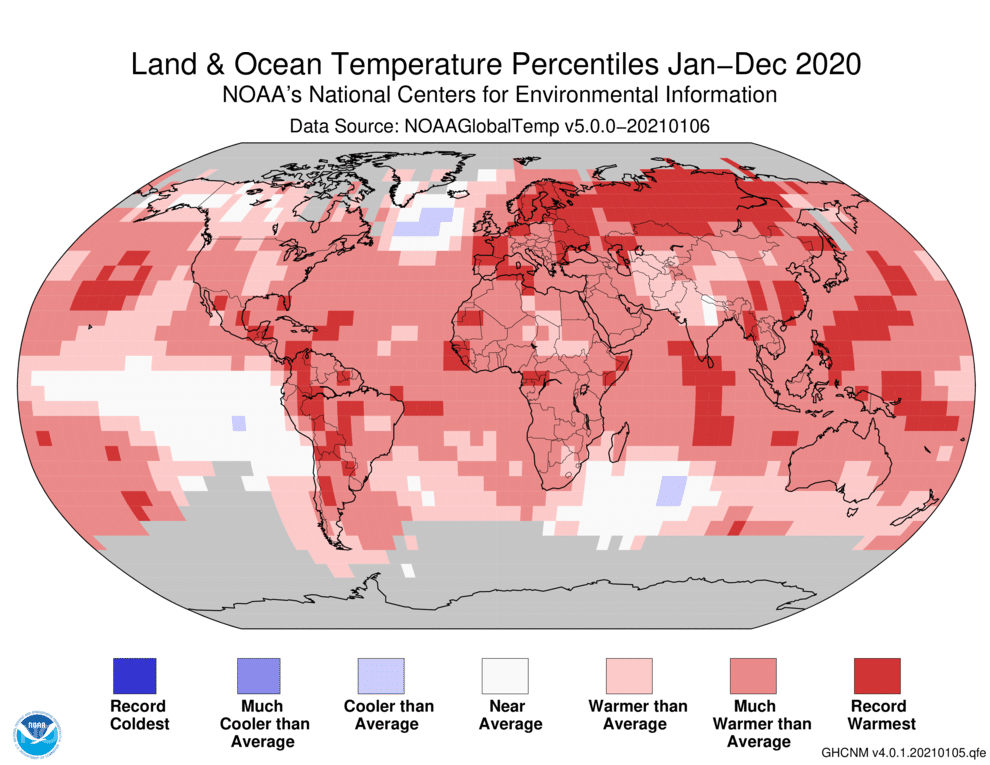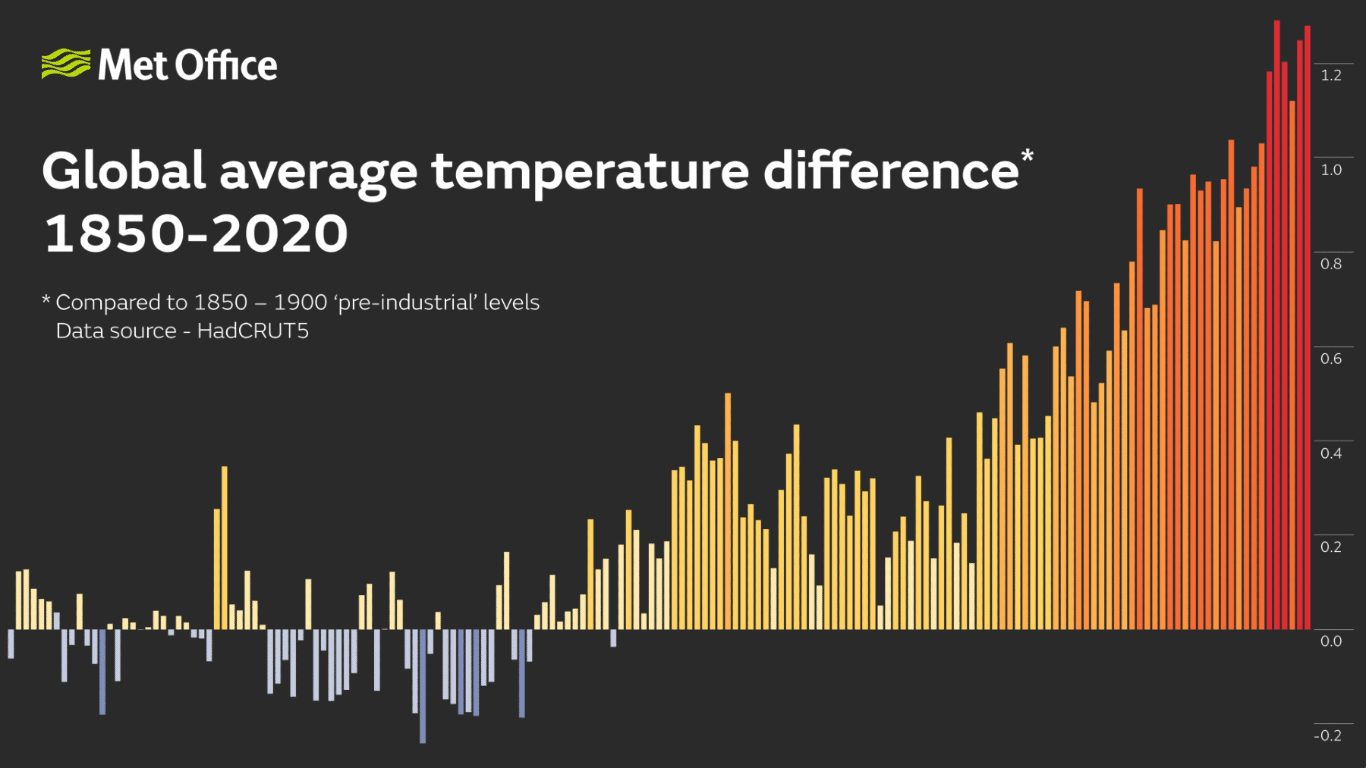
Heavy snow and freezing rain fell on portions of the United States this week, as winter entered its coldest stretch. Chilly weather, coupled with an ongoing pandemic and political grievances, tends to make many Americans forget that the planet is still warming.
According to NASA, last year tied with 2016 for the hottest year on record. Had this been an election, 2020 would have won, but by such a slim margin that a recount would have been automatic. NASA considers it a statistical tie, because 2020’s edge over 2016 falls within the margin of error of the analysis.
NOAA came up with a slightly different result, naming 2020 the second hottest year on record and calling the race for 2016. NOAA’s temperature analysis does not extrapolate temperatures over the Arctic to make up for the scarcity of measurements there, and the Arctic is one of the fastest-warming regions on the planet.
Scientists from the nonprofit research organization Berkeley Earth and the United Kingdom’s Met Office also ranked 2020 as a close second, while the European Commission’s Copernicus Climate Change Service called it a tie worldwide and the warmest year on record for Europe. Globally, Earth’s average temperature has risen more than 2 degrees Fahrenheit since the 1880s.
“The hottest year on record” is a headline that seems to be on auto replay. The third hottest year on record is 2019, and all seven of the past seven years have been among the hottest on record. A recent NOAA study predicts that most of the years in the coming decade will rank among the top 10 warmest years.

In theory, last year should have been noticeably cooler than 2016, because 2020 was not an El Niño year. El Niño and La Niña are the alternating phases of a weather pattern in the Pacific Ocean that tends to bring warmer temperatures during El Niño years. In 2016 the presence of El Niño gave the year a warm kickstart.
Upper ocean temperatures also hit another record high in 2020. Warmer water means increased sea levels, increased acidity, and “supercharged” storms.
Last year also set a record for weather and climate disasters—with 22 events in the United States that caused more than $1 billion each in damages. Previously there had never been more than 16 such events in any given year. Climate change is increasing the likelihood of extreme weather events such as tropical cyclones, severe storms, large wildfires, and sustained drought.
Even in winter, global warming doesn’t hibernate. Climate Central analyzed the average temperature for 244 weather stations across the United States over the past 50 years and found that at 83 percent of those locations the coldest days of winter have become warmer than they once were. Winter warming is especially pronounced in the Northeast, Southeast, and Alaska. That means more snow falls as rain, and mountain snowpacks that provide winter recreation and summer water supplies for households and farms are shrinking.
The Biden administration has already announced some of its plans for tackling climate change, including rejoining the international Paris Agreement. A new round of White House climate orders is expected tomorrow.
https://thebulletin.org/2021/01/broken-record-the-planet-is-getting-hotter-and-hotter-and-hotter/
2021-01-27 00:53:02Z
CBMiYWh0dHBzOi8vdGhlYnVsbGV0aW4ub3JnLzIwMjEvMDEvYnJva2VuLXJlY29yZC10aGUtcGxhbmV0LWlzLWdldHRpbmctaG90dGVyLWFuZC1ob3R0ZXItYW5kLWhvdHRlci_SAQA
Bagikan Berita Ini














0 Response to "Broken record: The planet is getting hotter. And hotter. And hotter. - Bulletin of the Atomic Scientists"
Post a Comment